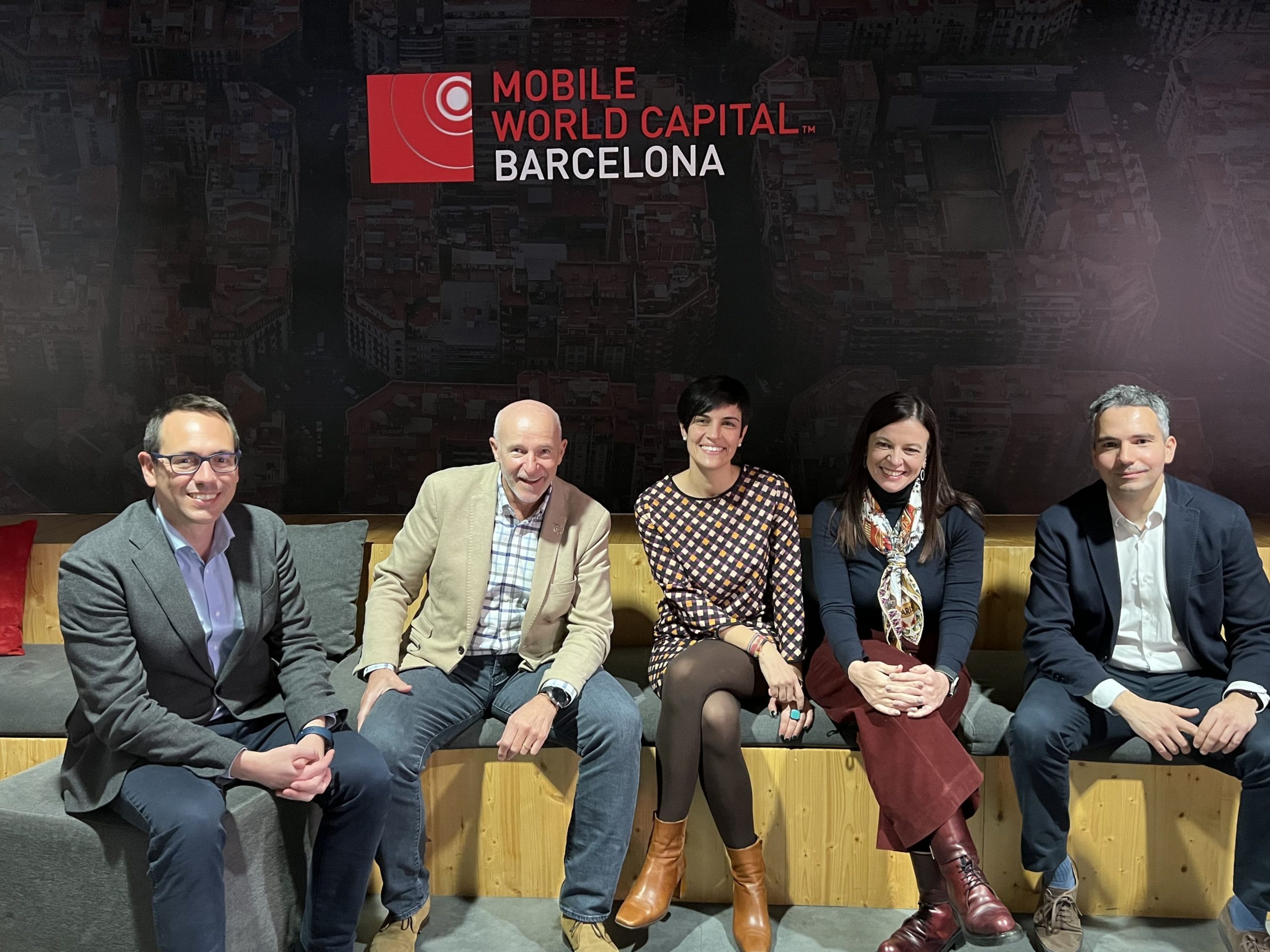
8 February, 2022
Presentation of the report “Analysis of Low-Code: new paradigm in software development”.
The “Analysis of Low-Code” paper, published by Barcelona Digital Talent and NTT DATA, provides evidence on how Low-Code can foster a true social transformation: it will allow the coding of APPs, websites or critical business processes without deep previous IT experience.
These technologies enable software development by minimizing or reducing (No-Code) manual coding.
Prestigious analysts such as Gartner expect the number of non-technological developers in companies -or citizen developers- to be four times that of professional developers by 2023.
42% of the companies interviewed are already training non-tech profiles in these solutions. The sector is expected to grow up to 17 times its 2020 size (Research & Markets) by 2030.
Mobile World Capital Barcelona and NTT Data have released the “Analysis of Low-Code: New Paradigm in Software Development” paper, aiming to showcase the consolidation of new Low-Code and No-Code technologies as an effective solution for companies suffering the shortage of digital profiles. They have done so within the Barcelona Digital Talent alliance, a Mobile World Capital Barcelona programme.
The paper features senior executives from over 25 companies such as Iberdrola, Zurich, Nestlé, Accenture or Bayer, who share their views on how the implementation of these technologies has contributed to the development of their businesses. These are complemented with analysis of data provided by IDC, Gartner and Forrester, specialized companies (Research and Markets, Job and Markets Insights), and of databases from public organizations such as Eurostats.
Low-Code and No-Code technologies: the solution to the growing digital divide and lack of specialized digital talent
Carlos Grau, CEO of Mobile World Capital Barcelona, who presented the event, highlighted that “Low-Code is a transformative and very relevant solution to cover urgent needs and, at the same time, train the companies’ talent“.
A new global demand of 500 million new applications is estimated by 2023, which will be met by a shortage of digital talent. 350,000 IT specialists will be needed in Europe (75,000 of them in Spain).
As of today, 55% of EU companies have difficulties in recruiting IT specialists, according to Eurostat. The gap is expected to grow, and the demand for ITT profiles in Spain doubles every two years. As a consequence, more and more companies are relying on Low-Code platforms in order to generate the talent needed to address this digital divide.
Low-Code technologies minimize or even eliminate (No-Code) manual coding in the development of software applications. Xavier Rovira, Managing Partner of NTT DATA Barcelona, emphasizes that “these technologies allow for a quicker and stronger digital transformation”.
Sílvia Sousa, Digital Strategy & Technology Partner at NTT DATA and Jordi Arrufí, Director of the Digital Talent program at Mobile World Capital Barcelona, provided deep insights into the report. Sousa presented Low-Code use cases and underlined that the companies participating in the report used Low-Code to “democratize code and programming, thus putting technology at the service of the employee as a lever for agility and innovation“. In Sousa’s words, “Low-Code emerged more than a decade ago, although it was not until 2017 that it began to become popular – we have now reached the point where we can speak of the Low-Code revolution. This is driven not just by the technology’s ability to accelerate app development, but also to democratize it.”
Arrufí believes that “the use of Low-Code means a real social transformation, as many more people will be able to program”, whereas the spokesperson for Barcelona Digital Talent emphasized that “the software industry is gearing up for all employees to be able to program and for the new figure of Citizen Developers“.
Improving agility, democratizing technology, accelerating the digitization of companies and developing digital skills
To understand the impact of Low-Code technologies in large corporations, Barcelona Digital Talent has interviewed several senior executives from leading companies, who have explained the role of Low-Code in their companies and the main benefits of these technologies.
One of the use cases features an application implemented by a group of professionals to improve the communication with relatives of hospitalized people during the Covid-19 pandemic – Low-Code allowed for the implementation of the app in just 7 days throughout 6 hospitals.
Gartner forecasts that 70% of new applications developed by enterprises will use No-Code and Low-Code technologies by 2025.
The companies interviewed reveal that Low-Code and No-Code is on the agenda of most CIOs, albeit still at an early adoption stage. The former are already training non IT employees in Low-Code technology, given the shortage of digital profiles. According to the paper, 42% of companies choose to train non-IT profiles when implementing projects based on Low-Code technologies. Low-Code manufacturers expect the Spanish market to grow by 100% in the next few years. In countries such as Spain, France, Germany and the United Kingdom job offers for Low-Code developers have grown by 73% compared to 2019.
About Barcelona Digital Talent
Barcelona Digital Talent promotes market competitiveness to address the current digital talent gap. With the aim of positioning Barcelona as a talent capital, the program promotes the reskilling in digital skills of professionals and the national and international attraction of new professionals in the market.
This alliance is driven by Mobile World Capital Barcelona, Cercle Tecnològic de Catalunya, 22@Network, Tech Barcelona, Foment del Treball Nacional, Barcelona Global, PIMEC, Ajuntament de Barcelona and Generalitat de Catalunya.
About Mobile World Capital Barcelona
Mobile World Capital Barcelona is an initiative that drives the digital development of society and helps improve people’s lives globally.
With public and private support, MWCapital focuses in four areas: accelerating innovation through digital entrepreneurship; transforming industry through digital technology; growing digital talent among new generations and professionals; and reflecting on the impact of technology in our society. Together, our programs are positively transforming the economy, education and society. MWCapital hosts MWC Barcelona and founded 4 Years From Now [4YFN], the business platform for the startup community present at all MWC events worldwide.
About NTT DATA
NTT DATA, part of the NTT Group, is an innovative global IT and business services company headquartered in Tokyo. The company helps clients in their transformation process through consulting, industry solutions, business process services, digital and IT modernization and managed services. NTT DATA enables them, as well as society, to move confidently into the digital future. The company demonstrates its commitment to the long-term success of its customers by combining global reach with local focus to work with them in more than 55 countries around the world. To learn more, visit nttdata.com.
Stay up to date about everything
Subscribe to stay up to date with the latest content from Mobile World Capital Barcelona.
